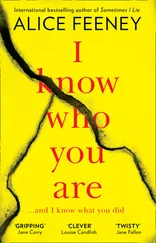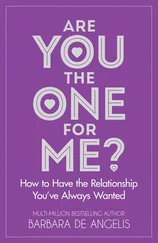“For people my age, you know, Pepsi is almost like a Russian brand,” said Andrei. “We grew up with Pepsi. Coke is seen as absolutely American, which helped them for a while. You know, they were the cool new foreign import. But they still have some catching up to do in this market. And our hypothesis is that America is losing its appeal as a selling point.”
“I don’t care about the cola war” I said. “I’m looking for my friend.”
“What friend?”
“No one you know.”
“Ooh, a secret friend,” he said. “Drug or podruga?” A male or female friend?
Andrei reminded me of some of the boys I knew in high school. I’d cross the Cathedral Close every afternoon for swim practice—we worked out with the boys in their school’s pool—and sometimes their campus felt like enemy territory. Some of the guys, out of faculty earshot, weren’t afraid to hurl words our way. Box, they whistled. Pussy. They just wanted a reaction. Even a deferential greeting held the threat of mockery. I always darted up the flagstone path, head down, swim bag over my shoulder. I was on guard. “Podruga,” I said.
“So mysterious,” said Andrei.
“My friend died, ” I said.
“If she’s dead, why are you looking for her?”
“It’s not funny,” I said. I was getting flustered. I could feel my cheeks engulfed with heat.
“Relax,” he said. I’ve always hated being told to relax. It feels patronizing.
Richard returned. “Women in the first group, men in the second,” he said.
Andrei crushed out his cigarette on the plastic arm of his chair, then swept the ashes onto the floor. “Come on,” he said, kicking an empty chair my way. “This will be fun. We’ll all learn something.”
Richard pulled the door closed. We were in the dark. “No light in here,” he said, “or they’ll be able to see us through the mirror.”
I felt a surge of claustrophobia. The older I got, the less I liked small, confined spaces. “I have to go,” I said. “I don’t feel well.”
“You can’t leave now ,” said Richard. “The consumers are coming into the room. We can’t open this door again until after the first group.” He stank of beer. The air was yeasty with his sweat.
Four women entered the conference room. They were all young—in their early twenties, perhaps—with hard, insolent faces. The hidden microphone wasn’t on yet, so we couldn’t hear Svetlana, but she must have asked them to sit down, because they all took seats. Sveta’s back was to us, and I could see the sharp bones of her spine through her blouse. The other women faced the mirror. They were drawn to their own reflections. Hands moved to smooth stray hairs; mouths pursed to correct lipstick smudges. They performed these touch-ups with robotic precision. There were two blondes, a redhead—through her thinning hair I could see that her scalp was stained with dye—and a brunette. Suddenly we picked up the broadcast of Svetlana’s reedy voice.
“What’s she saying?” Richard asked in a stage whisper.
“She has asked them to introduce themselves,” Andrei whispered back.
The woman on the far right began. She was the redhead. Her eyes were smudged with kohl. “Menya zovut Natalia,” she said.
“Her name is Natalia,” Andrei said to Richard. “But Sveta is calling her Natasha.” Natasha was the nickname for Natalia, just as Sveta was the nickname for Svetlana. In Russia, nicknames were standardized, along with everything else. We learned that Natasha was a secretary and that she was twenty-one.
The blonde next to her began to speak. “Menya zovut Zoya,” she said. Zoya had long, honey-colored hair with thick bangs that grazed her lash line and hid her brows. Finally, I thought, a Russian blonde whose roots weren’t showing. Her hair actually looked conditioned. Too bad Corinne wasn’t there to see it. Zoya said she was a teacher and that she was twenty-two. Then she said something about living in the States when she was a child.
“Did she just say she lived in America when she was young?” I said.
“No,” said Andrei. “You misunderstood.”
“We’re trying to understand their perceptions of America,” Richard said. “We’re trying to understand how those perceptions influence their notions of soft drinks and their usage patterns. Is a cola inherently American? Do we have to traffic in American imagery?”
But I was sure I didn’t misunderstand. She’d said, “Ya zhila v Amerike.” I lived in America. Either Andrei wasn’t listening closely or he was deliberately mistranslating. I couldn’t see his face in the dark. Was he lying or lazy?
“We’ve lost the sound,” Andrei said. We could see Zoya’s lips moving, could see her head cock to the left as she listened to Svetlana’s next question.
“Bloody hell,” Richard said. “Sveta must have bumped her microphone. If it’s not back on in a minute, you’ll have to go in there, Andrei.”
Zoya’s attenuated fingers were stroking her collarbone. She had the high cheekbones and deep-set eyes typical of Russian women and the same haughty expression. But there was something about the way she leaned forward, the way she looked directly at Svetlana as if she were comfortable with interviews.
I stood up.
“Hey,” said Richard. “You can’t go in there.”
“I just need a closer look,” I said. I pressed my face to the glass.
Zoya sat back, tucked her hair behind her ears. There was something familiar in her gestures, an echo of a former self. It was like watching a silent film, like watching a home movie. It was Jenny I was projecting onto the scene. I filled the hollows under Zoya’s eyes, dotted her nose with freckles, darkened her hair. Zoya looked nothing like Jenny. And yet.
“Is she Russian?” I said.
“Of course,” said Andrei.
Then the sound came back on. The return of Zoya’s voice—husky, jaded, Russian—altered the scene. I could no longer see any trace of Jenny there. She shook her head dismissively. “I don’t like American food,” she said.
“She doesn’t like American food,” Andrei translated.
The next woman introduced herself. Her hair was the color of dishwater, and she nibbled on her bottom lip as she spoke. “She is Lyudmila,” Andrei said. “She is a medical student. She is twenty-three.”
“Who found these people?” I said.
“What do you mean?” said Richard. “The consumers?”
“Where did they come from? Did Svetlana invite them?”
“Svetlana helped with the recruiting, yes,” said Richard. “We don’t have a proper planning department. We have to work with what we have.”
“Lyudmila says they used to pour Pepsi in wineglasses on special occasions,” said Andrei. “When they were children.”
I remembered New Year’s Eve when Jenny and I drank Coke out of champagne flutes to ring in 1983. “Cheers,” we said, uniting our glasses with a clink. “Not too much pop or you’ll be up all night,” Mrs. Jones warned.
“Now Sveta is asking them about colas,” Andrei said. “About Pepsi and about Coke. What they drink. What they like. Their usage occasions. What do they think about when they see these brands.”
“Too many questions at once,” Richard said. “I told her, you’ve got to build the discussion slowly, let them open up, not jump right in with brand identities. Christ.”
The women looked bored. The one named Zoya spread out her hands and scrutinized her manicure. Then she held her hands up on either side of her face and looked at herself in the mirror. Her nails were the color of scabs. And then she smiled. It reminded me of our elementary-school pictures. Once a year we were ushered into the gym where a photographer had set up a temporary studio on the stage. The photographer’s assistant distributed black plastic combs so that we could neaten our hair while we waited for our turn in front of the camera. Jenny and I were always together, so when we reached the front of the line, I watched her pose. Her face was blank until the photographer said “Ready?” and then she switched on her smile. The dimples came out, her eyes lit up.
Читать дальше












